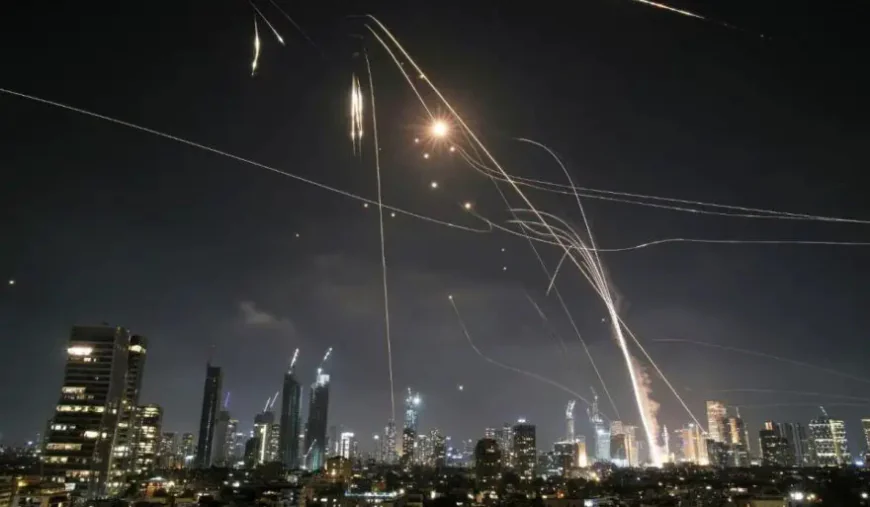Missile Barrages Push Middle East to the Brink After Israeli Airstrikes Kill Iranian Generals
Israel’s airstrikes kill top Iranian generals, prompting Iran to fire hundreds of missiles in retaliation. Global leaders urge restraint as fears of regional war grow.

The airstrikes and missile barrages sparked alarm among world leaders, many of whom called for immediate de-escalation to avoid a full-scale war.
UN Secretary-General António Guterres urged both nations to "step back from the edge" and warned that the region was "on the verge of a catastrophic confrontation."
US President Donald Trump, who said he was informed of the strikes in advance, reiterated American support for Israel’s security but called for a return to diplomacy. “Iran must not get a nuclear weapon—but we must also prevent another major war,” he said.
In London, UK Prime Minister Keir Starmer appealed for restraint, emphasizing that “further violence will not bring solutions.”
Russia harshly condemned Israel’s actions. Kremlin spokesman Dmitry Peskov called the strikes “reckless and illegal,” and the Russian Embassy in Tel Aviv advised its citizens to evacuate Israel immediately.
China also issued a warning, stating that prolonged hostilities could “ignite a broader regional war.” French President Emmanuel Macron said Israel had the right to self-defense but warned against actions that threaten the region’s fragile stability.
Turkey’s President Recep Tayyip Erdogan strongly criticized Netanyahu, accusing him of defying international norms and destabilizing the Middle East. He warned of “global consequences if the world remains silent.”
Iran-Backed Militias on Alert
Hezbollah, the powerful Iranian-backed group in Lebanon, labeled the Israeli strikes “brutal aggression.” Lebanese President Joseph Aoun echoed concerns and warned that the region could be dragged into war if calm was not restored. Reports also suggest that Houthi forces in Yemen and other Iranian proxies are on alert.
Historical Context and Escalation Risks
This latest escalation follows the October 7, 2023, Hamas-led attack on Israel, which led to months of cross-border conflict involving Hezbollah, Syrian militias, and Iranian-backed groups.
Experts fear that the current tit-for-tat attacks between Israel and Iran could trigger a multi-front war, drawing in other nations and severely disrupting global energy markets, especially if the Strait of Hormuz becomes a target.
What Happens Next?
The international community is scrambling to mediate and prevent a broader conflict. Emergency meetings at the UN Security Council and Arab League are expected within 24 hours.
For now, both Israel and Iran remain defiant, while civilians across the region brace for further strikes and uncertainty.


